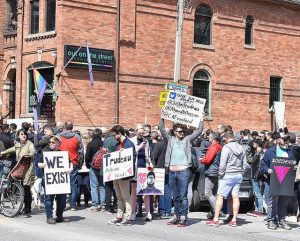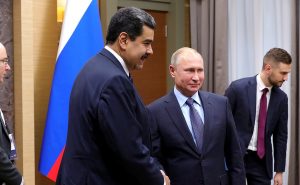Outcomes of the 2008 Russo-Georgian war through the eyes of Canada’s Minister of Foreign Affairs
Canadian Minister of Foreign Affairs Chrystia Freeland issued the statement on the 10th war anniversary between Russia and Georgia on August 7, 2018.
According to the statement, Russia continues to occupy South Ossetia and Abkhazia, infringing on Georgia’s sovereignty and territorial integrity. It negatively affects Georgians, 100,000 of whom remain displaced, and thousands more who live in those regions, being “victims of crimes and human rights violations, including kidnappings, restricted movement, and extrajudicial killings.” Such Russian behaviour in the international arena, Freeland calls “unacceptable,” “deplorable and unlawful.”
Canada expresses support for Georgia’s sovereignty and territorial integrity and “welcomes the Government of Georgia’s new peace initiative, ‘A Step to a Better Future’, directed at improving the humanitarian and socio-economic conditions of residents in Georgia’s Abkhazia and South Ossetia regions.” Chrystia Freeland also calls Russia to follow the Ceasefire Agreement of August 12, 2008, and the Agreement on Implementing Measures of September 8, 2008, as well as to allow the European Union Monitoring Mission access to those conflict areas.
As reported by the Independent International Fact-Finding Mission on the Conflict in Georgia, the open military confrontation between Russia and Georgia kindled “a sustained Georgian artillery attack [which] struck the town of Tskhinvali” in South Ossetia on August 7, 2008. Russian peacekeeping forces, deployed there in the 1990s after the armed conflicts in Abkhazia and South Ossetia seeking independence, responded with a counter-attack and moved further to other parts of Georgia. At the same time, Abkhaz forces supported by Russian troops took the upper Kodori Valley. The five-day war led to approximately 850 casualties from all sides, more than 100,000 displaced civilians and serious destruction. With French mediation, a ceasefire was reached on August 12, 2008, and contained, among other obligations, Georgian and Russian troops withdrawal and international discussions on the modalities of security and stability of South Ossetia and Abkhazia. At the same time, Russia unilaterally recognized South Ossetian and Abkhazian independence on August 26, 2018, which was condemned by the EU and other western countries. But despite this fact, another agreement on Implementing Measures was negotiated on September 8, 2008, again with an active involvement of the French President Nicolas Sarkozy representing both his country and the EU. There was a commitment to a full withdrawal of Russian armed forces from Georgian territory, with Russian peacekeepers staying in South Ossetia and Abkhazia and UN, OSCE and additional EU international observers “in the zones adjoining” those two regions. Thus, the EU Monitoring Mission, made up of around 200 unarmed monitors, was set up in Georgia in September 2008. And it claims that authorities of Abkhazia and South Ossetia have so far denied Mission’s access to these regions.




